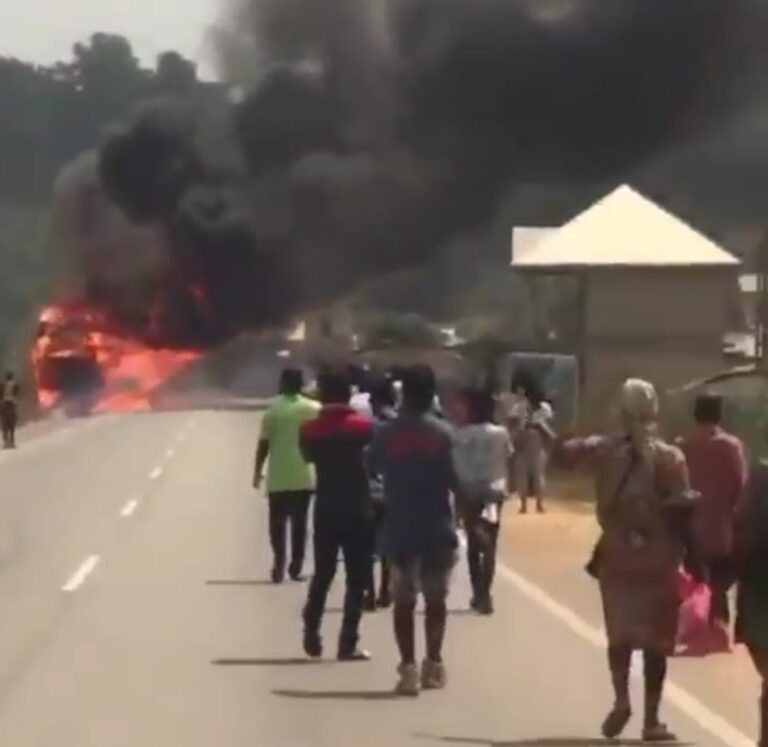In case you haven’t heard, on Thursday, 20th January 2022, a large explosion occurred along the Tarkwa-Bogoso-Ayamfuri road after a truck transporting mining explosives reportedly collided with a motorcycle. The explosion leveled an entire village nearby. As at the date of this article, 13 people had been confirmed dead, and an additional 59 people have been injured.
It is reported that the truck was transporting explosives to the Chirano gold mine which was about 140km (87 miles) from the scene of the blast, when it was hit by a motorcycle. This allegedly caused a fire, leading to the explosion about 15 minutes later.
Like many people, I wondered if we have laws in Ghana to regulate the use or transport of explosives. The answer is yes.
There are a number of laws that directly or indirectly, govern the use or transport of explosive in Ghana including:
(1) the Minerals and Mining Act, 2006 (Act 703);
(2) the Minerals and Mining (Health, Safety and Technical) Regulations 2012 (LI 2182);
(3) the Minerals and Mining (General) Regulations (LI 2173); and
(4) the Minerals and Mining (Explosives) Regulations, 2012 (LI 2177).
You are at liberty to add some more you discover. However, this discussion will focus on the law which, in my opinion, provides the most practical guidelines specific to the use of explosives, i.e. the Minerals and Mining (Explosives) Regulations, 2012 (LI 2177).
The LI applies to anyone that uses explosives for any kind of work, except the Police or Military.
The law does not apply to explosives, fireworks, a coloured flare, a percussion cap, rocket or other similar device(s) used by the Ghana Ports and Harbour (GPHA), Aviation and Railway Authorities. In order to place this discussion in its proper context, each of the items regulated by the LI are explained below.
• Explosives
Explosives have been defined by the LI to include devices like: dynamite, black powder, pellet powders, initiating explosives, blasting caps, safety fuse, fuse lighters, fuse igniters, squibs, cordeau detonant fuse, instantaneous fuse, igniter cords and igniters. An explosive can also be any other chemical compound or mixture that functions primarily by explosion, which involves instantaneous release of gas and heat. Therefore, once the device, chemical compound or device operates by explosion that releases gas and heat, it is an explosive.
• Fireworks
Most of us have a fair idea of what fireworks are: those things that sometimes sound like a gun has gone off and usually produce beautiful coloured lights in the sky. The Ga’s aptly call it “tun t3” (sound of a gun). For the more studious readers, the Merriam-Webster Dictionary defines a firework as “a device for producing a striking display by the combustion of explosive or flammable compositions.”
• Coloured flare
A flare is a “fire or blaze of light used especially to signal, illuminate, or attract attention.” A coloured flare may be used for various reasons. For instance, a coloured flare can be used as a distress signal (which are usually red in colour). There are examples of coloured flares used as a gender reveals during baby showers as well.
• Percussion Cap
Percussion caps are basically firearm ignition devices. As the description suggests, they are used to ignite firearm which undoubtedly can be harmful if not used correctly. Indeed, even where it is used correctly but for the wrong reasons, it can still case considerable harm or damage to life and property.
• Rocket
LI 2177 does not define what a rocket is. However, a simple Google search can provide some clarity. According to NASA, the word “rocket” can mean different things: a tall, thin, round vehicle that launches into space, a type of engine or a vehicle that uses that engine. It is said that fireworks are the simplest of solid rockets and the weakest.
A soda bottle rocket science experiment is a rocket. Therefore, this is discussion is as relevant to the science teacher at a JHS who encourages the creation of a lab based rocket as it is to the multimillion dollar mining company operating in Ghana.
Major Takeaway:
The most important thing to note here is that each of the devices described above are restricted to use by the GPHA, Aviation and Railway Authorities, Police and Military only.
Therefore, the LI applies to any other person who uses, a firework, percussion cap, coloured flare, rocket or other similar device. This means, the neighborhood gangs who use fireworks during Christmas or other holidays are required to comply with this law.
Equally, the galamsey operator and the licenced mining companies are required to comply with LI 2177 with the same level of seriousness.
Evidently, the LI applies to the mining contractor that attempted to transport the explosives that led to the Bogoso explosion.
Below are the basic legal requirements for the use of explosives in Ghana. Please note that these are just a few of the legal requirements for the use of explosives and by no means exhaustive.
• Any person who holds a mineral right where explosives are used must appoint a person with a valid explosives manager’s certificate as an explosives manager. The process for acquiring an explosives manager’s certificate is determined by the Minerals Commission.
• In addition to the certificate of competency, the explosives manager must obtain an explosives operating licence from the Minerals Commission. Depending on the specific requirements of the mining company, the explosives manager may obtain an explosives operating licence to buy and use explosives; store explosives; buy, sell deal with and act as a broker of explosives, among others. Each type of license has its specific requirements.
• The holder of the mineral licence must ensure that any activity (including the conveyance, storage, possession, manufacture and use of explosives) that involves explosive substances are:
- managed by a certified explosives manager;
- carried out only by competent and certified persons; and
- carried out only if the licences and permits required are in place.
• Prior to the commencement of any operation involving explosives in Ghana, the holder of a mineral right must submit an Explosives Operating Plan detailing the proposed activities to be conducted to the Chief Inspector of Mines for approval and issuance of that entity’s explosives operating licence.
• The explosives operating licence must be renewed annually and the holder of the licence must notify the Chief Inspector of Mines of any significant change in the operation plan prior to the implementation of the plan.
It is important to note that the appointment of competent persons does not relieve the holder of a mineral right or a manager, of any personal responsibilities.
Therefore the holder of the mineral right for which the explosives were being transported can be held personally liable in spite of the fact that a competent explosives manager was employed to supervise the transport of the explosives.
Some Legal Issues arising from the Explosion
- Operating Licence for Transportation of Explosives: no entity in Ghana can transport explosives without an operating licence for the transportation of explosives. The licence is valid only for the area and for the period stipulated in the licence and is subject to renewal on application. Therefore the relevant legal questions is: did the mining company acquire an operating licence for transportation of the explosives? As investigations progress, hopefully, we will have some answers.
As part of the application for an operating licence for transportation of explosives, the applicant must include an emergency response plan. - Emergency Response Plan: the LI requires that the Explosives Operation Plan mentioned above include an emergency response plan and both the holder of the mineral licence and the explosives manager must ensure that the response plan is implemented during an emergency connected to the explosives.
In the case of the Bogoso explosion, it is not clear whether there was an emergency response plan in place at all and if there were, its implementation leaves much to be desired. - Monitoring: interestingly, the law requires the Chief Inspector to thoroughly examine each installation and equipment in a place where explosives are stored, transported, manufactured or used and issue a certificate if the Chief Inspector is satisfied with the result of the inspection. A permit must be obtained from the Minerals Commission each and every time explosives are to be transported. The relevant questions are:
(a) Was an inspection conducted prior to the transport of the explosives?
(b) Was a certificate issued?
(c) How do we ensure that on the basis of the terms of the certificate, the transportation was carried out in a safe manner?
As is human nature, where there are no sanctions or consequences for actions, we barely obey the rules. So in case you were wondering, there are clear sanctions for breaching any of the legal requirements discussed above ranging from fines to imprisonment. To folks who use fireworks or any explosive contrary to the LI, you can actually go to prison for four (4) years or pay a fine of about GHS12,000 or both.
On a more serious note, no amount of punishment can compensate for the loss of lives in this unfortunate incident. One life lost is one too many. My condolences to the injured and to the families of the deceased. May God keep us all.



